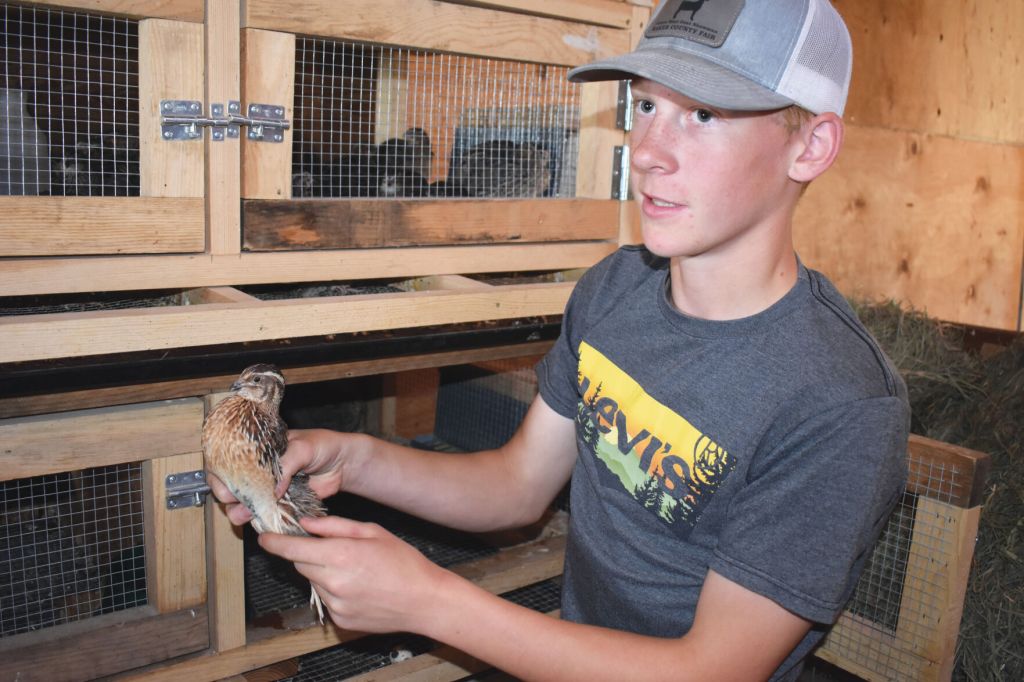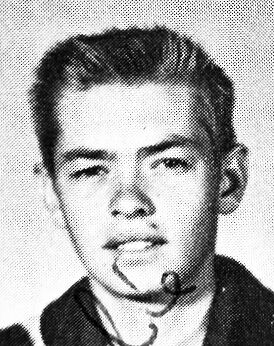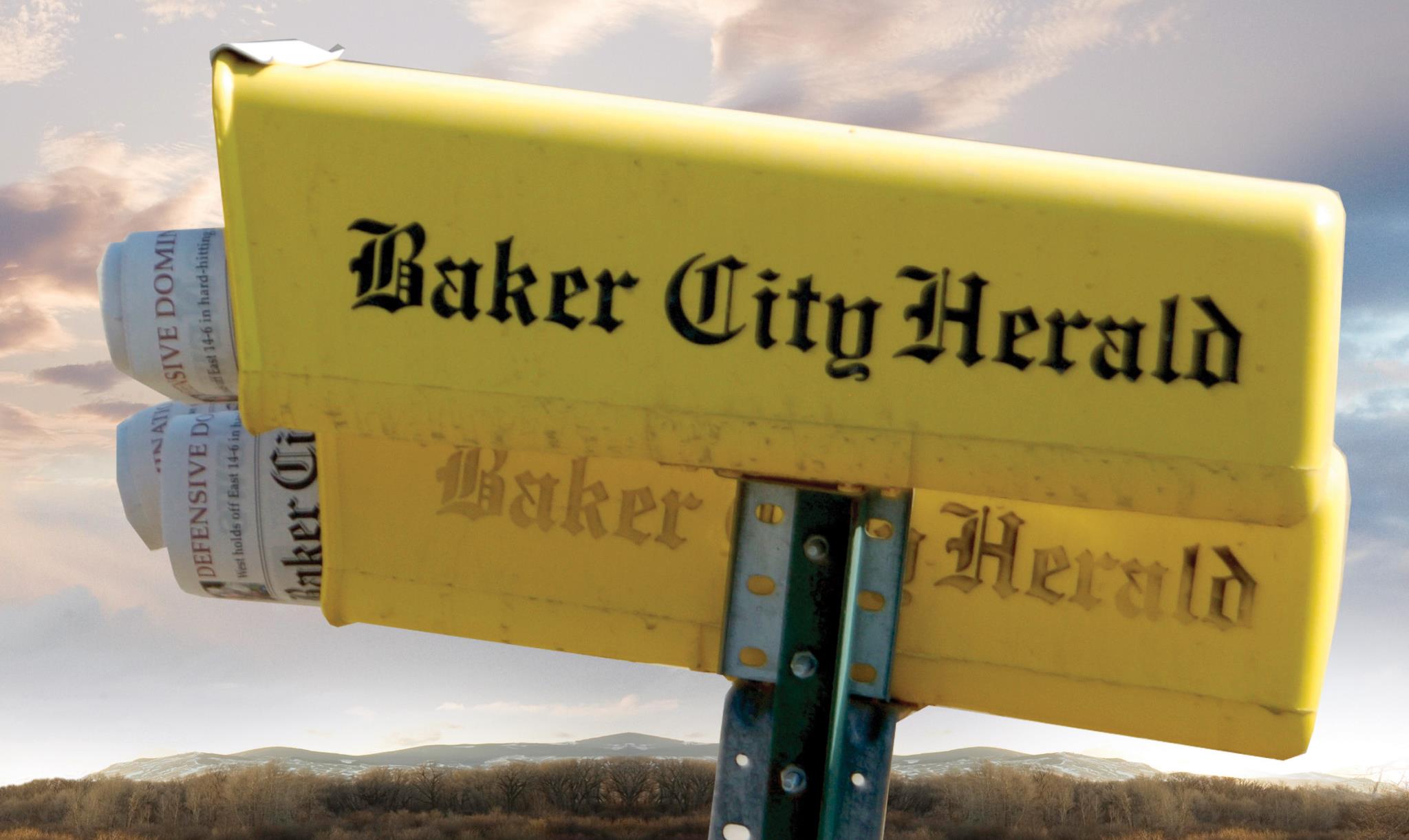Feathers, family and a farm: Jill and Nick Myatt and their sons sell chicken, rabbits and other meat raised on their farm in Baker Valley
Published 6:30 am Thursday, August 1, 2024

- Tyler Myatt raises coturnix quail both for meat and eggs. Inset: A quail egg
BAKER CITY — The Myatt family’s summer weekend included the usual activities — scalding, plucking, disemboweling.
There were many feathers.
Quite a lot of clucking.
And when Nick and Jill Myatt, and their sons, Chase, 15, and Tyler, 13, finished the final task at their farm in Baker Valley, they had somewhere around half a ton of chicken meat to sell.
Including, if your dog has a hankering, packages of chicken heads and feet.
The Myatts devoted more than two years to creating the poultry and rabbit processing operation on the 23-acre Feather Goat Farm they bought in April 2021.
Hundreds of hours of toil.
A building to construct.
A labyrinth of government red tape to negotiate.
And, when all those tasks had been tackled, they had 200 chickens to butcher, package and label for sale.
The family secured its final permit from the Oregon Department of Agriculture in mid-June. The document allows the Myatts to sell not only whole chickens to customers in Oregon, as they had done before, but to also sell chicken parts — the separate packages of wings and breasts and other cuts that Nick said most customers prefer.
After a couple of trial runs when they processed much smaller flocks of chickens, the Myatts on the weekend of July 12-14 tested their system at full capacity.
They were pleased with the results.
“Proof of concept,” Nick said.
“It actually worked,” Jill said, smiling. “It was our dream, and it was so great to have it happen.”
An early start
On the first day, Nick awoke at 3 a.m. to gather the chickens.
(The birds are calm then and much easier to round up, Jill said. Once the sun’s up they are, well, less cooperative.)
Two hours later, just before the sun cleared the wall of the Wallowa Mountains to the northeast, the four Myatts gathered at the facility on the east side of a metal barn near their home.
Just outside the structure, Chase grabbed each chicken and inserted its head into a metal cone, in the general shape of a megaphone, that holds the bird in place and diverts the blood. He sliced the arteries on either side of the head, then put the birds, four at a time, into a metal container where propane heats the water to 147 degrees Fahrenheit.
This is the scalder.
The carcasses bathe for 50 seconds. The hot water loosens the feathers.
Another machine, just inside the barn, handles the plucking, eight birds at a time.
It’s a round stainless steel vessel, 27 inches in diameter, and the walls and floors are studded with more than 20 rubber “fingers,” sort of like unusually long door cushions. Nick said Amish craftsmen build the plucking machines in Pennsylvania.
An electric motor spins the floor, and the rapidly rotating carcasses are freed of their feathers in just 30 seconds or so as they rub against the rubber fingers.
Chase collected the plucked carcasses and handed them through a window into the next room, which is cooled by an air conditioner. The white walls, concrete floor and stainless steel table are bare and clean, a sterility reminiscent of an operating room.
There, Tyler and Nick waited with knives.
With the chickens placed on the table, water hoses dangling within convenient reach from the ceiling, the pair gutted the carcasses.
About 85% of the bird is used, Nick said, including the hearts, livers and necks.
The blood, feathers and guts are combined with chicken and goat manure, straw, waste hay, wood shavings and other material to make compost.
The wastewater is stored in a 1,000-gallon tank buried on the farm, and is used to keep the compost pile moist.
The cleaned carcasses go immediately into a bath of cold water that quickly chills the meat to 40 degrees.
Then the birds move into another room, this one colder still, at about 36 degrees. The process is known as “air chilling.”
That’s day one.
The Myatts processed 200 chickens, which were about seven and a half weeks old and weighed on average about 6 pounds, in five and a half hours on July 12.
Pieces and packages
Until the Myatts obtained their slaughter facility license, there was only one option — packaging the whole chickens for sale.
But Nick said each bird can bring in quite a bit more money if it’s cut into parts.
“A lot of people don’t want a whole chicken,” he said. “People want convenience.”
During the second and third days the Myatts divided the chickens into pieces for packaging.
The packages were stacked in freezers, ready for sale.
The Myatts offer their chicken at the Baker City and La Grande farmers markets.
They also sell through Good Groceries, a service based in Wallowa County that distributes food, including local products, in Wallowa, Baker and Union counties.
The Myatts would like to eventually sell meat to local restaurants, as well.
In addition to the slaughter facility permit, Jill said she obtained a separate permit as a licensed pet food processor.
That allows the family to grind up bones, heads and other chicken parts and sell the product as pet food.
Jill said dog owners also buy intact chicken heads and feet, which are sold in packages.
It was, the Myatts conceded, a long and tiring weekend.
But at least they had Kenny Chesney to help.
Chase compiled a “chicken-processing playlist” of music to keep the family entertained as they turn the Cornish-cross hybrid chickens into packages of meat.
The songs, he said, are all “louder country.”
“We need something to wake us up and keep us going,” he said.
But the volume, Chase and Tyler said, drops when their mom arrives.
Jill likes to intersperse the music with conversation.
‘A family affair’
The successful test of the processing plant was, in common with the rest of the Feather Goat Farm operation, a group effort.
“It’s a family affair,” Jill said. “We all have our own part, and if one of us wasn’t there we couldn’t do it.”
Nor would this have happened if either of the boys wasn’t interested, she said.
“Before we started any of this we did ask the boys, do you want to do this?” she said.
For she and Nick, the farm fulfilled a dream each has had since they were kids themselves.
And running this operation, with goats and geese and rabbits and quail and chickens, all ensconced on this 23-acre spread at the base of the Elkhorn Mountains, could hardly be different from their own childhoods.
Nick grew up in the suburbs of the Twin Cities in Minnesota.
Jill was a suburban kid, too, near an even bigger metropolis — Chicago.
“I always had dreams to be a farmer, as a little girl,” she said.
It all started with one rabbit.
“It’s a gateway drug,” Nick said with a chuckle.
The Myatts were living in Baker City when Chase acquired that bunny several years ago.
He started breeding the animals.
He also began to study rabbits, experimenting with ways to adjust their feed to maximize their growth and meat production potential.
Chase has won national awards through the FFA for his rabbit research.
The Myatts also raised chickens in Baker City, though for eggs rather than meat.
But their ultimate goal was to own a farm.
They looked for several years for the right place before finding the property near Hunt Mountain.
Nick and Jill thought it was the ideal place to raise their sons.
“The lifestyle here is so appealing,” Jill said. “It’s so great to have the boys grow up in this way.”
With so much more space than in a city backyard, the Myatts expanded their menagerie.
More rabbits.
More chickens.
They added goats, one of Jill’s favorite animals.
And they started to think about starting a business, something that would help Chase and Tyler with what Nick called “life lessons.”
Nick and Jill settled on processing, and marketing, chicken and rabbit meat, along with goats, geese and quail. Other meat animals, including turkeys and ducks, could join the menu, too.
The pandemic slowed the Myatts’ progress.
Supply chain shortages made it difficult to get building and other materials as they assembled the barn and put in a well and constructed fences and installed water lines.
And costs “skyrocketed” for the items they could find for sale, Nick said.
But they persevered.
Jill managed the growing farm along with Chase and Tyler, and Nick helped when he wasn’t working his other job, East Region manager for the Oregon Department of Fish and Wildlife in La Grande.
Brothers with different interests
Chase, the older brother, continues to expand his scientific knowledge of animals.
In addition to his award-winning rabbit research, he’s studied chickens.
“He’s more of the entrepreneurial mindset,” Jill said.
Tyler, meanwhile, prefers the processing side of the operation.
He dates this interest to the first deer he shot, at age 9.
Rather than let his dad handle the messy task of gutting the animal, Tyler insisted on wielding the knife.
“I said I want to do this myself,” he said.
While other pre-teen boys might top their Christmas gift list with a cellphone or a video game system, Tyler asked one year for a meat cleaver.
“We didn’t have one,” Jill said with a laugh.
Another year Tyler’s request was for a commercial-grade scabbard for one of his knives.
And then a “butcher’s bible.”
Chase plays an integral role in the processing — he does the first cuts, after all — but he still prefers the science and marketing side of the operation.
“I will process, but I don’t want to,” he said, smiling.
He raises rabbits both for meat and for sale, including pedigreed animals, as county fair projects.
Summer is chicken season
The Myatts have a definitive schedule for their chicken operation.
They buy the day-old chicks, which arrive, much like credit card offers but noisier and fluffier, through the mail.
The chicks live inside the barn, in heated brooders, for three weeks.
The Myatts feed the birds a mix of wheat and peas they buy from Wallowa County Grain Growers.
Nick said that although the feed is more expensive than other types, he likes to use a locally grown (Wallowa and Union counties) product.
Jill said the feed also has made a noticeable different in the quality and texture of the meat.
When the chicks are three weeks old, the Myatts move them to one of the mobile range coops they recently built. These 12-foot by 24-foot coops were built on sleds so they can be moved easily with a tractor.
Every day the Myatts move the coops in their pasture so the chicks have fresh grass. The birds also feed on grasshoppers, which have, to the detriment of the family’s garden, been plentiful this summer.
Nick said the chickens get about 20% of their food from the pasture rather than from a container of feed.
The process is known as “pasture poultry raising,” and Chase said it’s vastly different from the better-known “free range” moniker.
That’s basically a marketing slogan, he said — chickens can qualify if they have any access outside, even if that means a few square feet of concrete.
The mobile coops have a half-dome roof made of material that’s white on the outside to reflect sunlight, but black on the inside, creating shade and lowering the temperature by more than 10 degrees on a scorching mid-July morning.
The coops are fitted with automatic feeders and a drip watering system.
Because it’s so hard to keep chicks warm during winter, the chicken raising is a summer operation.
The Myatts plan to process three more batches of 200 birds each this summer.
Although they haven’t processed any rabbits, the new state-licensed facility is set up to handle those animals, as well, Nick said.
Although chickens and rabbits make up the core of Feather Goat Farm’s products, the Myatts also raise goats, both for breeding and for meat.
(They would either need a federal license to sell packages of goat meat, or take the animals to a licensed facility, either of which would be prohibitively expensive, Nick said.)
“It’s a common question around our dinner table,” Nick said. “How many goats do we have?”
The family also has a flock of geese, which they process and sell as whole birds.
Tyler is raising coturnix quail, both for their meat (as whole birds) and for their eggs, which are like miniature works of art, with mottled brown and white.
He built the hutch with his fraternal grandfather, a structure angled so the quail eggs roll down a tray where they’re easy to gather.
Future plans
Although the Myatts are focusing on chickens, now that their licensed facility has proved its efficiency, they would like to expand the products they offer at farmers markets and through their website, feathergoatfarm.com (they also have a Facebook page with the same name).
They have raised ducks for meat, and Nick said it’s probably his favorite.
They’ve also discussed adding turkeys to their product line.
The processing facility is designed, and licensed, for all types of birds, including waterfowl.
Nick and Jill said one of their goals is to provide local residents with the centerpiece for a classic Christmas or other holiday meal — a sort of Currier & Ives vision of a roast goose or turkey.
“A Christmas goose, like ‘Little House on the Prairie,’ ” Jill said.
“The lifestyle here is so appealing. It’s so great to have the boys grow up in this way.”
— Jill Myatt, who owns Feather Goat Farm near Baker City with her husband, Nick, and their sons, Chase, 15, and Tyler, 13




